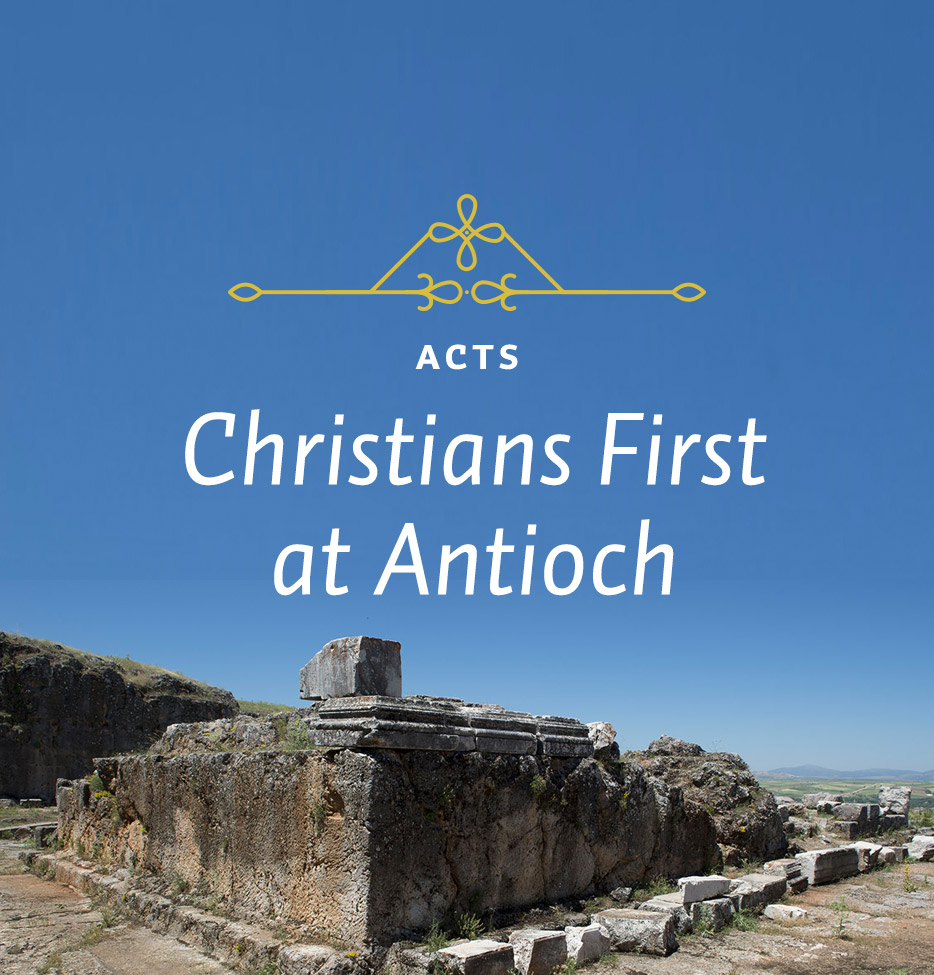Acts 11 continues the story of the expansion of Christianity to the Gentiles that began in chapter 8. Acts 8:4 read, “Those who had been scattered preached the word wherever they went.” Now Acts 11:19 says almost the same thing: “Now those who had been scattered by the persecution in connection with Stephen traveled as far as Phoenicia, Cyprus, and Antioch, telling the message….”
When the Gospel was preached in Caesarea, Cornelius was at least what is described in the story as “a God-fearer.” He was a Gentile, but he was the kind of Gentile who was attracted to the Jews’ religion. Since Cornelius was such a person, he undoubtedly already knew something about the God of Israel. Now, however, in the city of Antioch, we find Christians preaching to those whom we would call utter pagans, since Antioch was an utterly pagan city.
The progression reminds us that Acts is not a haphazard telling of the story of Christianity, but rather a step-by-step unfolding of the expansion of the Christian Gospel and the Christian Church throughout the known world.
And by the time we get to chapter 11, we are getting close to the kind of evangelism we know today. Our chief field for our evangelistic witness is those who are without. We are to go into the whole world with the Gospel, even to those who do not want to hear it.
One chapter further on, when we get to chapter 13, we find that it is from Antioch that the great missionary movement, focused on the journeys of the Apostle Paul, starts. Since the church was made up of people converted out of paganism, they naturally had the needs of pagans on their hearts.
1. A political center. Antioch was an interesting city. It was founded after the conquests of Alexander the Great by one of his generals. Antioch was on the Orontes River, which made it possible for it to maintain trade with the great Mediterranean cities. Yet it was far enough inland to be a strategically centered command post for the rule of Syria.
As we read about the various cities of the Roman world in Acts, we find that each is quite properly given its own character.1 Jerusalem is a Jewish city, filled with volatile temperaments and seething with the Jews’ great hatred of the Gentiles. Rome is quite different. It was the capital of the empire and was very power conscious. Athens was the intellectual center of the world. Antioch was distinguished by being cosmopolitan. There was a tremendous mix of people in this city. It was not far north of the Jewish states, so many Jews were found there. But Antioch was actually located in Syria, which meant that there were many Arab peoples too. And there were also Greeks, who were descendants of the Seleucids and Ptolemy, and Romans since they were the occupying power.
By this time Antioch had grown to be the third most important city in the empire. Rome was first, Alexandria in Egypt was second, then Antioch of Syria because of its extensive Mediterranean trade.
1This is one evidence of the veracity of Luke as an historian. For an excellent description of the local color and atmosphere of the major cities of the eastern Mediterranean as Luke presents them, see F. F Bruce, The New Testament Documents: Are They Reliable? (Grand Rapids, MI: Eerdmans, 1960), 88-89.






